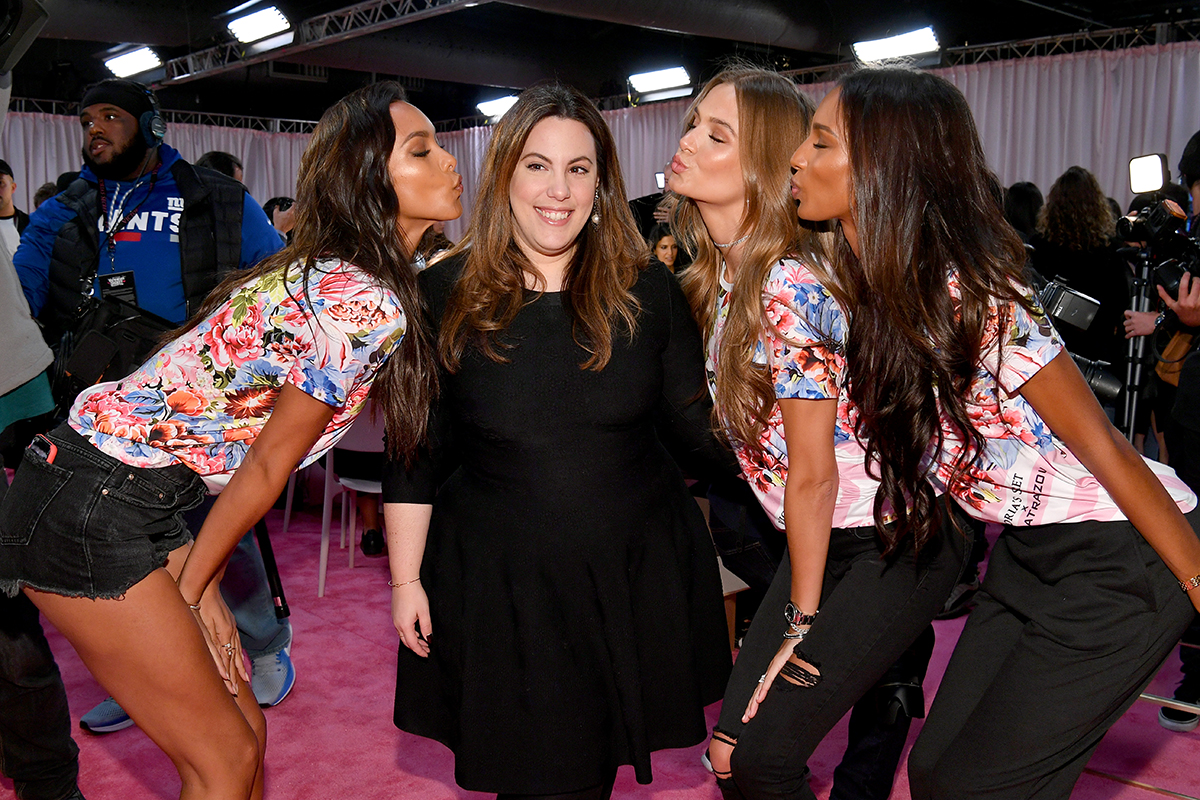
Mary Katrantzou (second from left) backstage at the 2018 Victoria’s Secret Fashion Show in New York
With a decade of successful collections behind her and a penchant for outside-the-box collaborations, Mary Katrantzou is a designer not only bursting with creativity but also with the business acumen to go truly global, as Carolyn Asome discovers
Don’t underestimate the agility required to keep up with Mary Katrantzou’s boundless curiosity, the ever-inventive ways she pushes herself out of her comfort zone, the rat-a-tat-tat of her myriad collaborations (more of which later) and fundamentally, her desire to never sit still.
Does Katrantzou, who for the past decade has wowed us with her own strand of quirky maximalism, breathtaking decoration techniques and architectural shapes, ever worry that her body may struggle to keep up with her mind? The Greek-born fashion designer (and veritable power house), who read architecture at the Rhode Island School of Design before studying for a BA in Textile Design at London’s Central Saint Martins, howls with laughter at this. “It’s true, I’ve turned 36… it probably doesn’t.”
Follow LUX on Instagram: the.official.lux.magazine
Few designers are able to confront the obstacles of growing their own business. Fewer still are able to articulate them quite as clearly as Katrantzou can – although one senses that she has always relished the challenge. Her voice lights up: “Growing your business is the ultimate in creativity. It forces you to have an understanding of the business of fashion. I don’t think you can have a company without that interest or without the ambition to be involved.”
In an increasingly volatile retail climate, what are the challenges she faces? “There are several, but one of them is having a voice that really stands out against the noise. There are lots of heritage brands with a rotation of designers at the helm. You need to really know what you stand for. I challenge myself to do that each year. You might think you have an idea of who your woman is, but it isn’t always as easy as you think it is. I am not designing for a romantic warrior…” she laughs. “Sure, she is bold and daring and she uses fashion as a tool of expression. What I design has an element of uplift, but it also has links to art and design – that is very much part of it, too.”
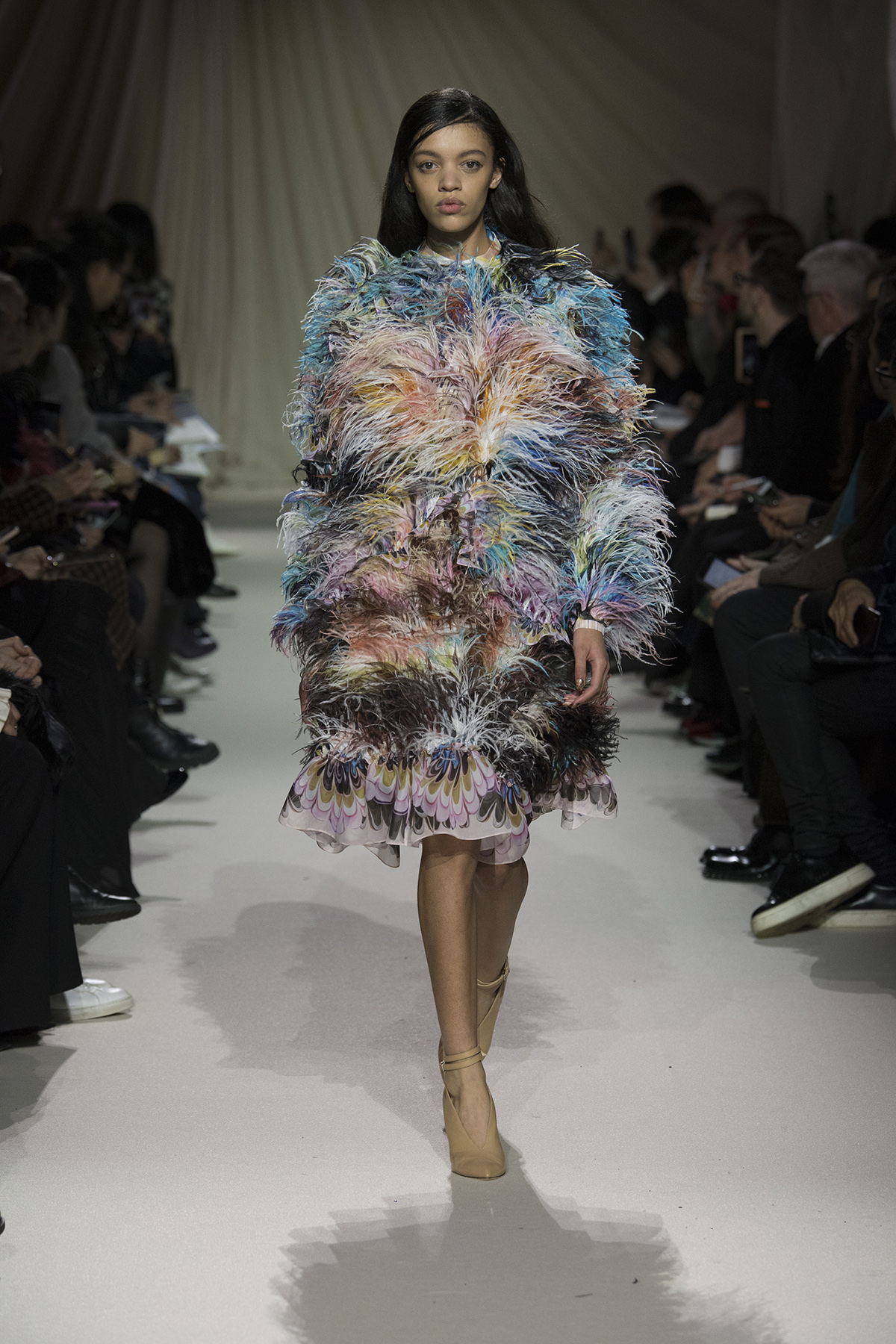
A look from Mary Katrantzou’s AW19 collection
The conundrum of dealing with an ever- whizzier hamster wheel of production also looms large. Thankfully, Katrantzou explains this is far less of a taboo subject than it was in the past. “Three years ago, no one wanted to talk about it and you almost closed your eyes and hoped for the best, but now other designers talk and you realise we are all in the same boat. Because obviously it is going to affect your creativity.”
Her solution? “While we have four drops annually, there are only two thematic collections a year so that means we have longer to talk about something, but we still have the newness.” Another challenge she mulls over is how to move outside ready-to-wear and use her design talent in other areas. Given that Katrantzou trained as an architect, she enjoys the challenge of looking at things from different perspectives and the creativity that comes with designing in different realms.
“We’ve tried to shift the brands in both directions: at one end offering shows at a demi- couture level and building on our customer relationships so that they can buy from us as made-to-measure or bespoke, but also, to do collaborations with much bigger global brands which allows us to reach a far wider audience.”
Read more: Photographer Thomas Demand on abstract perspectives
Katrantzou enjoys the fact that collaborations force her to think in a completely different way. “It’s an entirely different end use of a product. You can be democratic in a way that as an independent brand you just can’t be, because you can’t reach those price points or your minimums and production runs are so different. The modern brand of today needs to be reaching out to all different price points and different tiers. You are communicating with your customer but offering her a very comprehensive way of being able to buy your brand. We are doing a tenth of what we can do as we are still largely a ready-to-wear brand, but we’ve created jewellery with Swarovski, and done a small homeware range with a friend, Brigitta Spinocchia Freund. We’re also doing a ballet at Sadler’s Wells with Russell Maliphant and music by Vangelis, which is obviously so different from what you get when creating the costumes for the Victoria’s Secret show.”
The designer’s interesting collaborations – ones which challenge the well-trodden formula of designer/highstreet unions – are what caught the eye of Chinese investor Wendy Yu, the 28-year-old who has earned herself the reputation as China’s unofficial fashion ambassador.
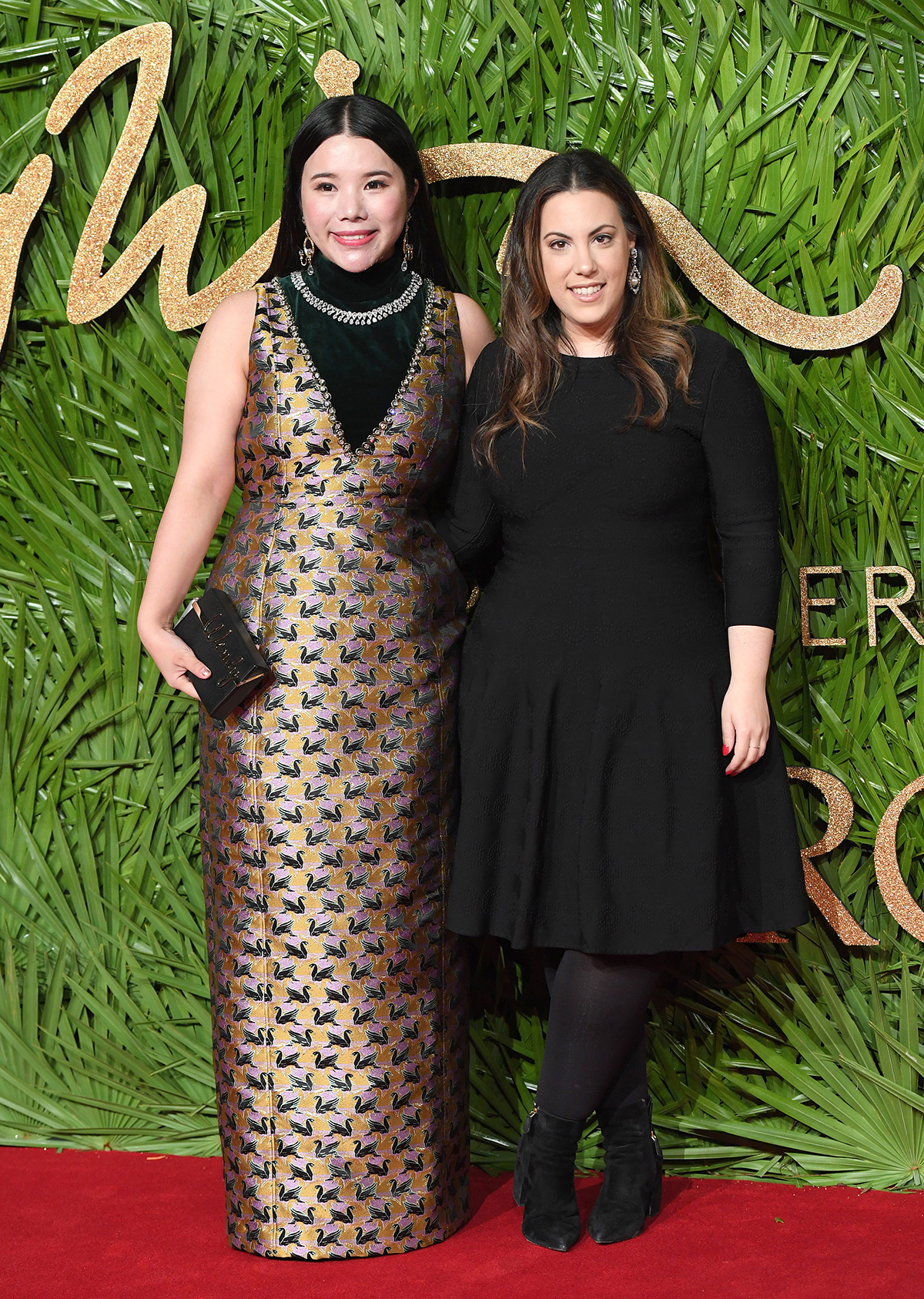
Mary Katrantzou with Wendy Yu 2017
Two years ago, Katrantzou took investment from Yu. “I’d noticed and loved Mary’s capacity and talent to expand into different product categories along with her infectious energy and drive,” says Yu. “She’s built a brand with a strong and unique identity. I can see the potential of Mary Katrantzou homeware and beauty… I think the Chinese consumer would really buy into the brand at this lifestyle level too.”
Yu was one of three who came in on a ‘family and friends’ round of investment. For Katrantzou, the idea was also to look at what investors could offer aside from the financial support. “Wendy has been helpful with expanding in China. She is someone who understands how to help build a brand between east and west, between fashion and the arts.” Katrantzou has also learnt that in order to create awareness in China, it takes much more than just visiting once a year. It’s visiting regularly and initiating activations that really engages.”
Despite following a wholesale model, Katrantzou finds that clients come to her, season after season. “It’s rare these days to have a really loyal client. I don’t know what it is about the brand that elicits that loyalty but whatever it is, I don’t take it lightly.” This modesty is typical of Katrantzou. Such is her talent that she has clients who own so many of her clothes, they might easily stage a retrospective of her collections. It is telling that one of her most devoted fans is also one of the biggest collectors of Phoebe Philo’s collections at Celine – “our aesthetics couldn’t be more opposite” – and yet, there is something about the power of Katrantzou’s craft, the detailing and point of view that elicits such fandom.
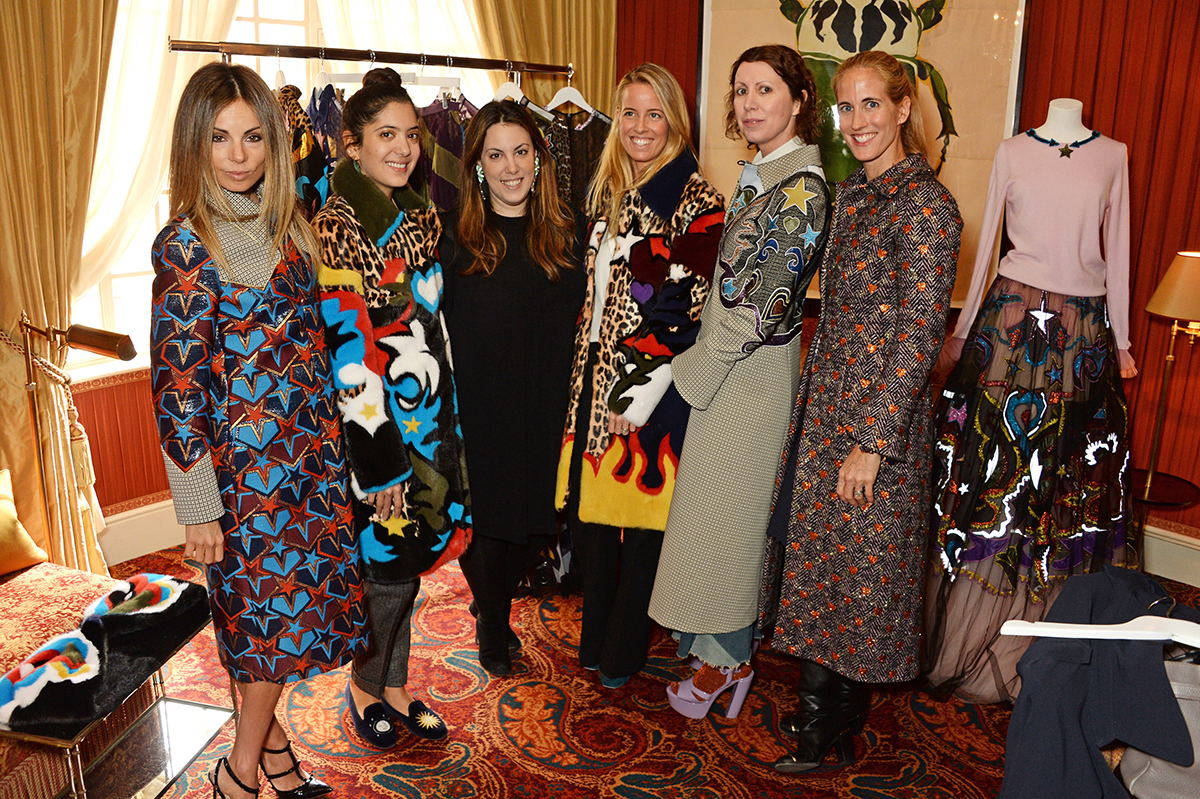
Katrantzou and friends at London Fashion Week, 2016
Last September, Katrantzou celebrated her tenth anniversary, filling Camden’s Roundhouse with a collection all about collecting and collectables. Instead of a ‘best of ’ tribute to the preceding decade, she riffed on philately and entomology. One gown resembled a Fabergé egg gleaming with crystals, while a bustier dress revealed an array of coloured stone rings within a jewellery box.
Read more: Why LUX loves the New Perlée creations by Van Cleef & Arpels
Her most recent collection was based on the elements – earth, air, fire and water – and how they exist within us. “I wanted to explore the fire – when you have that energy and passion; or air when you feel that sense of being light and free. And it was interesting to distil all of that into a collection as it was so abstract and unlike my previous collection, which was more literal and very object driven.”
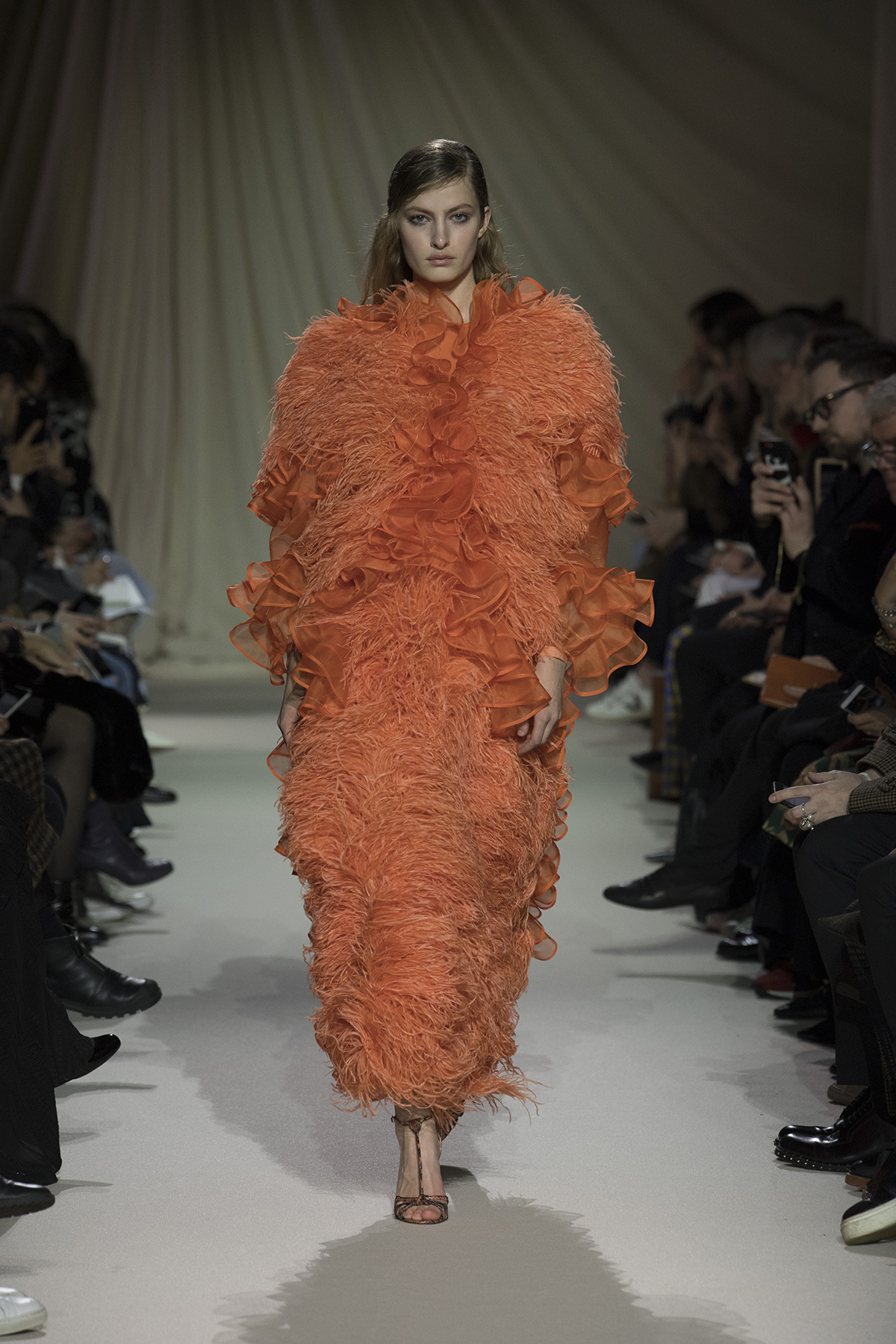
A look from Mary Katrantzou’s AW19 collection
For water and air, Katrantzou explored silhouettes that were weightless, either in organza or tiers of ruffles, which “bounced in a cloudy way, or else we used feathers”, experimenting with materials and techniques that haven’t been explored before.
Today, there are 25 people in Katrantzou’s London studio and her label is sold in 50 countries. “Our strongest markets are in the US, the UK, southern Europe, the Middle East and now China,” she says. “You know you appeal to a certain type of woman, and while I’m not saying an archetypal woman, they do have something in common. And we don’t have to be big in the Nordic countries if we are not selling there.”
Increasingly, Katrantzou is thinking about how she fits into the world around her: what she stands for and how that extends to bigger topics. “Luxury for me is knowing you are not harming your environment, knowing that the pieces you create will last in someone’s wardrobe for ever. I find it interesting that clients increasingly come to me and say they want to spend x amount on this one dress rather than buy 20. There’s a return to craftsmanship, pieces that are made by hand. With demi-couture, you are supporting a more analogue approach to fashion. It isn’t a big percentage in terms of how many commissions we get, but it is a sizeable part of the business… and it’s growing.”
Find out more at: marykatrantzou.com
This article was originally published in the Summer 19 Issue.

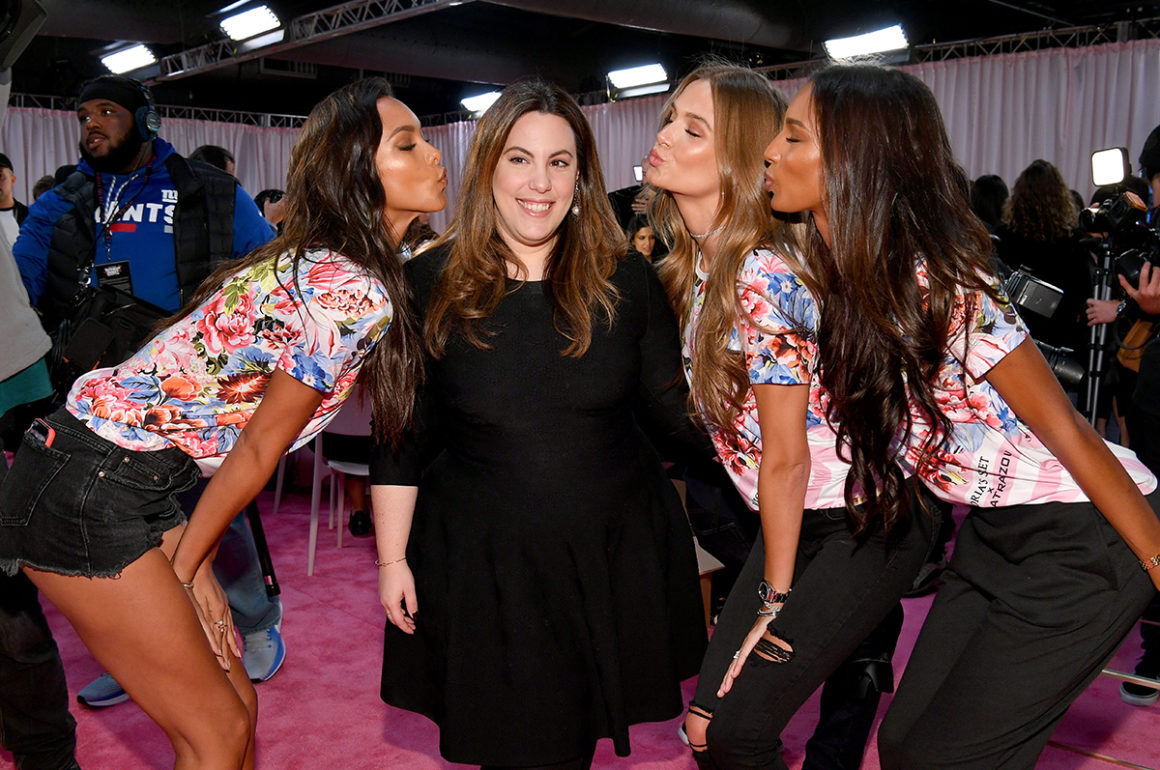





Recent Comments